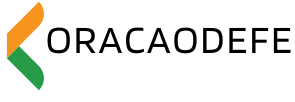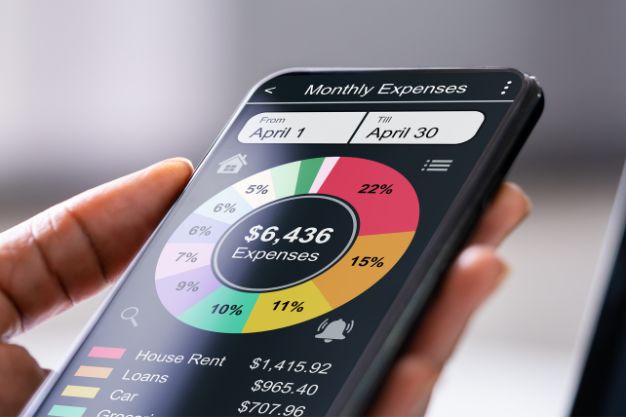In the past, managing your money required creating budgets on paper, maintaining bank records on paper, and extensively tracking expenses with calculators. There are many digital tools and apps for phones that have made it easier than ever to keep track of your money. There’s probably an app or website made just for you if you’re making a budget, saving money, trading, or paying off debt. Insights, routines, and clarity that help you build better money habits with less stress and time are some of the other things these tools do.
With simple apps, making a budget is easy
Making a budget is an important part of managing your money well, and there are now many apps that make the process easy. Mint is one of the most popular picks. This free app can connect to your bank accounts, keep track of your spending by area, and let you know when bills are due or when you go over your limit. It shows you your money right now, so you can make better choices every day.
You Need A Budget (YNAB) is another great app. It uses a zero-based planning method to help you make the most of every dollar. Instead of passively watching your spending, YNAB encourages you to plan ahead. This can be especially helpful if you want to stop living from paycheck to paycheck.
EveryDollar, which was made by Dave Ramsey’s team, has a simple drag-and-drop layout that lets users plan their monthly spending. The free version needs you to enter information by hand, but the paid version connects to your accounts so that tracking is done automatically.
Bank apps that do more than just show balances
A lot of current banking apps do more than just the basics. No-fee banks like Chime and Revolut offer services like early direct payments, regular savings transfers, and more. They’re made for people who want easy, mobile-first banking that fits their needs.
It’s also easy to use apps like Current and Ally Bank, which offer tools like spending details, savings goals, and real-time transaction reports. These apps take away a lot of the guessing that comes with standard banking and give users more control over their money.
Things you can do in apps to automatically save
It can be tough to save money on a regular basis, but technology can help you. Digit and Qapital are two apps that can help you save money without you having to think about it. Digit looks at how you spend your money and moves small amounts of money from your bank account to your savings account on a regular basis so that you don’t go overdrawn. It’s different with Qapital. You can make your own rules for saving money, like saving $5 every time you skip going to the coffee shop.
People who want to save for short-term goals or an emergency fund will find these apps useful. They make it easy and even fun to see their savings grow over time.
Debt-Payment Tools That Help You Stay Focused
There are tools that can help you if getting out of debt is one of your main financial goals. Undebt.it is a web app that helps you make a custom plan to pay off your debts using either the snowball or avalanche method. It shows you how far you’ve come, keeps track of your interests, and keeps you encouraged with success measures and payoff times.
Tally is a useful app that can help you manage multiple credit cards and pay them off faster by combining them into one low-interest line of credit. It’s great for people who have a lot of cards with different interest rates and due dates.
Apps for both new and experienced investors
These days’ apps have made investing less scary than it used to be. Users of Robinhood and Webull can trade stocks and ETFs without having to pay any fees. This feature makes it easier for people who don’t have a lot of money to start trading. These are great for people who want to take charge of their own investments and learn by doing.
For users who don’t do much, apps like Acorns and Stash make the process even easier. After you make your daily purchases, Acorns adds up the change and puts it in various different investments. Stash lets you put small amounts in ETFs and partial shares of well-known companies. It also has training material built in to help you make choices.
Robo-advisors, such as Betterment and Wealthfront, offer low-cost, automatic investing that is based on your goals and risk tolerance. These are ideal for people who want to invest for the long run without having to do much.
Cost-tracking tools that give you a big picture
Tracking your spending is tiring but necessary to understand your finances. You can see where your money is going with apps like PocketGuard and Spendee that connect to your bank accounts. Based on your buying habits, they put your money into groups, keep track of your regular bills, and offer ways to save cash.
People new to planning or those who often overspend are most likely to benefit from these tools. It’s easier to stay on track and aware when you can see your spending in clear groups and charts.
Help for Couples and People Who Share Their Money
Managing money with a partner makes things even more difficult. Honeydue and Zeta are two apps that are made just for couples. You can talk about money, see joint spending, and keep track of individual accounts all in one place. You can make budgets together, split bills, and even talk about spending choices in the app, which clears things up and cuts down on confusion.
These apps can be especially helpful for couples who are joining their funds or who are sharing tasks but still want to keep their separate finances.
Apps for learning about money and making plans
Knowing a lot about money is very helpful. Personal Capital and other tools can give you a full picture of your finances, financial plans, and spending habits. You can make a budget and keep track of your investments with this app. It helps you plan for the future while also keeping you informed about your current spending.
Apps like Finimize and NerdWallet can help you learn the basics of money management. They do this by giving you short lessons, daily insights, and specific suggestions that help you become more financially savvy over time. An app can teach you to budget, trade, or fix your credit as you grow.
In the end, let technology help you save money
It doesn’t have to be hard to keep track of your money. Digital tools and apps make it easier to do a lot of things, like making a budget, saving money, spending, and paying off debt. You can find a tool that fits your goals, habits, and way of life, whether you’re just starting out with money or want to make your plan better.
The best part? Since many of these tools are free or very cheap, anyone with a computer or smartphone can use them to handle their money. One tap at a time, you can manage good habits, track your progress, and get a better handle on your financial future if you have the right tools.




